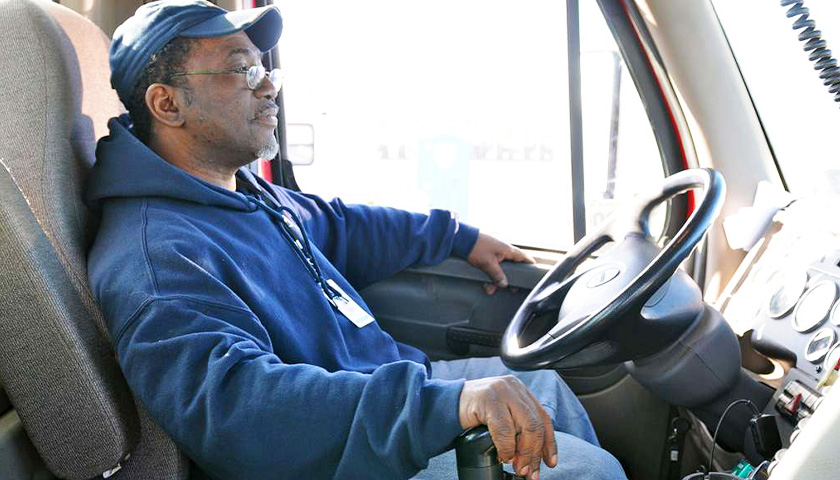by T.A. DeFeo
A Georgia State Senate study committee will explore how the state can help mitigate the truck driver shortage.
In April 2022, Gov. Brian Kemp, a Republican, issued an executive order, which, in part, allowed heavier trucks to operate on Peach State roads. The governor subsequently renewed the executive order, but it expired in March.
Earlier this year, lawmakers passed Senate Resolution 155 to create the five-member Senate Truck Driver Shortages Study Committee. In passing the resolution, lawmakers cited an American Trucking Associations finding that the industry will have to recruit nearly 1.2 million new drivers over the next decade because of industry growth and to replace drivers who leave or retire.
“Our lawmakers like to boast that Georgia is the No. 1 place to do business, and I agree,” National Federation of Independent Business State Director Hunter Loggins told The Center Square. “However, if there is inaction [and] other states are getting a jump on things and implementing remedies and doing their best to address the truck driver shortage issue, Georgia is going to be left behind, and nobody wants that.
“If we don’t do anything, other states might implement [initiatives], and it might be difficult for interstate commerce,” Loggins added. “…If the laws in place in other states are more trucker-friendly than Georgia, they’re going to operate in those states and avoid Georgia altogether.”
As an example of a program to help recruit drivers, Loggins pointed to a provision in the Infrastructure Investment and Jobs Act, requiring the Federal Motor Carrier Safety Administration to establish a pilot program allowing employers to launch an apprenticeship program for 18-to-20-year-olds to operate commercial vehicles.
The issue of the nation’s driver shortage surfaced during the first meeting of the Senate Study Committee on Expanding Georgia’s Workforce this week.
“We have a well over 100,000 driver shortage right now,” Steve Jones, director of HR planning for UPS, said during the meeting. “We don’t have the ability to create programs to train them quick enough to be able to make a difference. [What] anybody who’s lived through the supply chain issues that we’ve had in the past couple years understands is that a CDL driver is critical to the economy.”
– – –
T.A. DeFeo is a regular contributor at The Center Square.
Photo “Truck Driver” by Defense Visual Information Distribution Service.








